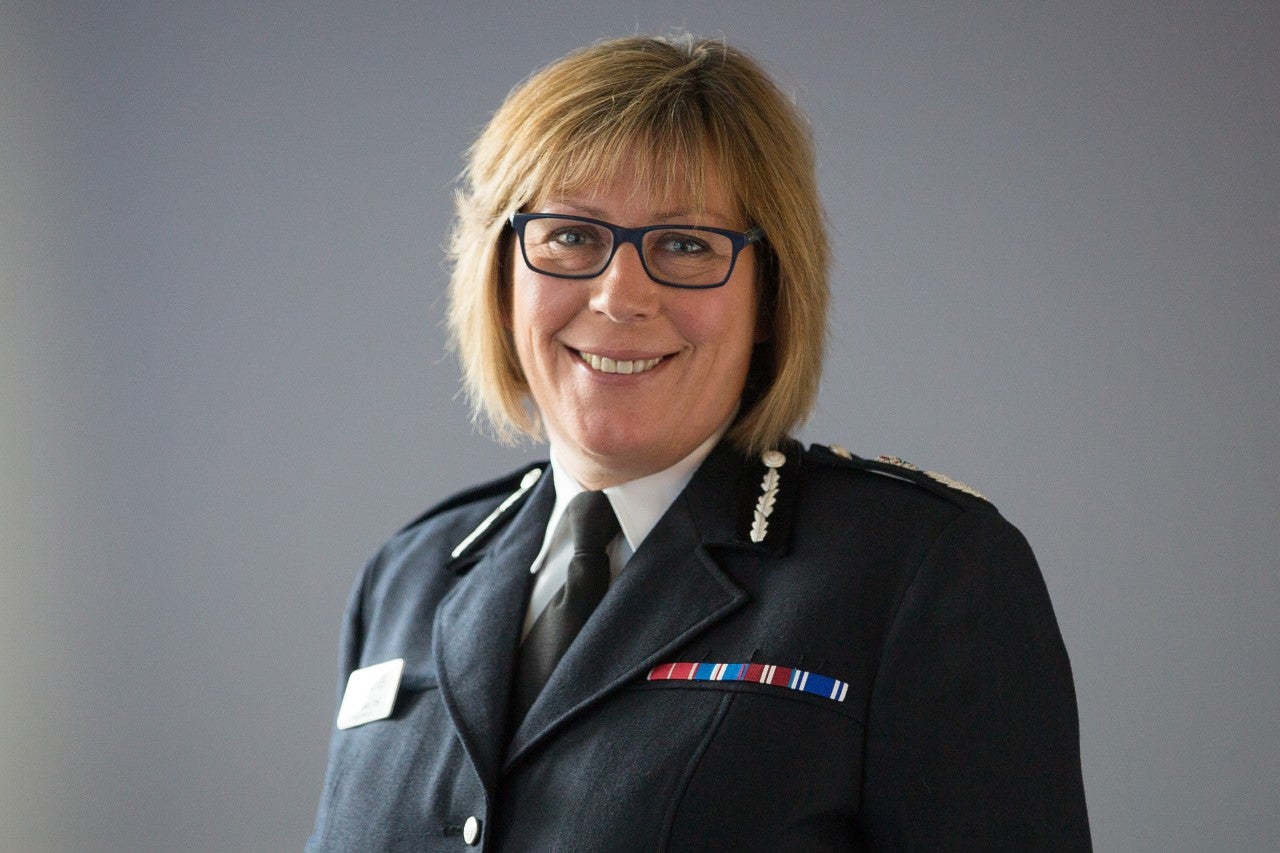Police engage in ‘appalling bullying’ if officers accuse colleagues of sexual offences, ex-police chief warns
Exclusive: ‘There are predatory sex offenders who are police officers. But there are others who join and become opportunistic,’ Sue Fish says

Police officers routinely perpetrate “appalling bullying and blanking” when officers accuse colleagues of sexism and sexual offences, a former police chief has said.
Sue Fish, former Nottingham Police chief, said officers who speak out can be abruptly moved to other police forces without their consent as she warned of a “laddy culture” in policing which means misogyny and sexual advances are tolerated.
Speaking to The Independent in an exclusive interview, Ms Fish also warned it used to be “fairly normal” for police officers to watch porn on duty in groups, while a minority of police officers are “predatory sex offenders” who “repeatedly prey on women”.
Ms Fish, who retired back in 2017, said officers who accuse colleagues of sexual harassment or sexism are often excluded from police operations.
She added: “You are bullied. You are not spoken to. You are literally blanked. These are some of the ways that have been described to me by men and women I’ve spoken to.
“The culture doesn’t call anything out. That culture of fitting in, of belonging, is so powerful that stepping outside is career and social suicide.”
Ms Fish, the first chief constable to record misogyny as a hate crime back in 2016, noted many police officer’s social lives are centred around spending time with colleagues – adding that many even meet their partners through policing.

“Officers often socialise together,” she said. “They play sport together. They’re in the same five-a-side football team. A lot of their lives are entwined with other police officers.”
Ms Fish, who alleges she was herself sexually assaulted by male colleagues on two separate occasions, explained speaking out against fellow officers can mean “saying goodbye to many aspects of your social life” as she labelled the culture of policing as highly “competitive”.
In policing, you are given a uniform, you are given a vast amount of power, and discretion to exercise that power. You are in this huge position of trust within the community. You go and see vulnerable people all the time, frequently on your own, and have very little supervision
The officer said she would be “amazed” if female officers had not experienced sexual harassment or sexual assault from a fellow officer during their career.
The ex-police chief said she knew of a police station where it is standard practice for officers to rate the woman they are taking a statement from out of 10, in terms of their appearance, and use a number to refer them when speaking to colleagues via the radio. This behaviour can escalate to officers “pinching women’s arses” or “squeezing women’s breasts”, she added.
“You’re in a police van on a Friday or Saturday night, officers are grading all the women going in and out of bars and clubs,” Ms Fish added.
The former police chief explained last spring she has been in contact with a female police officer who went to professional standards, the department that investigates officers and staff accused of misconduct in each force, about a range of sexualised bullying she and other women she worked with had endured.
She added: “She was told by them there wasn’t sufficient evidence and it wasn’t going to ‘be worth the pain’ that she would be put through.
“To which she replied: ‘You just need to put an undercover or bug it’. But it was thanks very much and she was shown the door. That is unsurprising to me but it is really disappointing.”
Ms Fish said it was nothing out of the ordinary for officers to watch porn when she worked as a sergeant inspector in the early 1990s, with officers watching it in the communal staff room area.
“Finding people watching porn and kicking them out of the police station on nights – that was normal,” she said.
Ms Fish’s comments come in the context of the police facing mounting criticism for failing to tackle violence against women and girls within their own ranks in the wake of Sarah Everard’s murder and rape by a serving Metropolitan Police officer.
Wayne Couzens, who used Covid lockdown restrictions in order to falsely arrest the 33-year-old marketing executive before kidnapping, raping and strangling her, was sentenced to a whole-life prison term in September.
Couzens was reportedly nicknamed “the rapist” by colleagues due to making female officers feel uncomfortable. The officer was accused of several instances of indecent exposure – legally defined as deliberately displaying your genitals in a public space to trigger alarm or distress – before killing Everard.
Meanwhile, Met Police officers were criticised for aggressively grabbing women paying tribute to Everard at a peaceful vigil in Clapham, south London, last March before taking them away while others screamed and cried out.
Ms Fish said while a lot of police officers are greatly adept at their jobs and are “extraordinary human beings”, some officers are “predatory sex offenders”.
She added: “I’ve sadly met some, and sent some to prison. There are predatory sex offenders who are police officers. But there are others who join and become opportunistic.
“In policing, you are given a uniform, you are given a vast amount of power, and discretion to exercise that power. You are in this huge position of trust within the community. You go and see vulnerable people all the time, frequently on your own, and have very little supervision.”
She said predatory officers will generally target women who will be deemed less credible witnesses than they are, such as women with mental health issues, or those who have had children taken off them by social services.
“Or were the subject of domestic abuse in past so perhaps their sense of what a normal, healthy relationship isn’t the same,” Ms Fish added.
More than 150 women have contacted the Centre for Women’s Justice, a legal charity that tackles violence against women, about police-perpetrated domestic abuse they claim to have experienced.
A spokesperson for the National Police Chiefs’ Council said: “We recognise that misogynistic attitudes and behaviours that exist in society, exist in policing too. That matters so much because of the powers we hold and because our legitimacy is built on public confidence.”
The representative said they are dedicated to “working with, and listening to, those in the sector” to make their “response to violence against women and girls” better.
“As part of our commitment, every force in the country is prioritising it,” they added. “Policing, and society, has significantly changed in the period referenced. Anyone who experiences or witnesses sexual harassment should come forward and report it. We encourage our officers to be upstanders, not bystanders, to this behaviour and anything reported will be taken seriously and investigated.”
Join our commenting forum
Join thought-provoking conversations, follow other Independent readers and see their replies
Comments




Bookmark popover
Removed from bookmarks